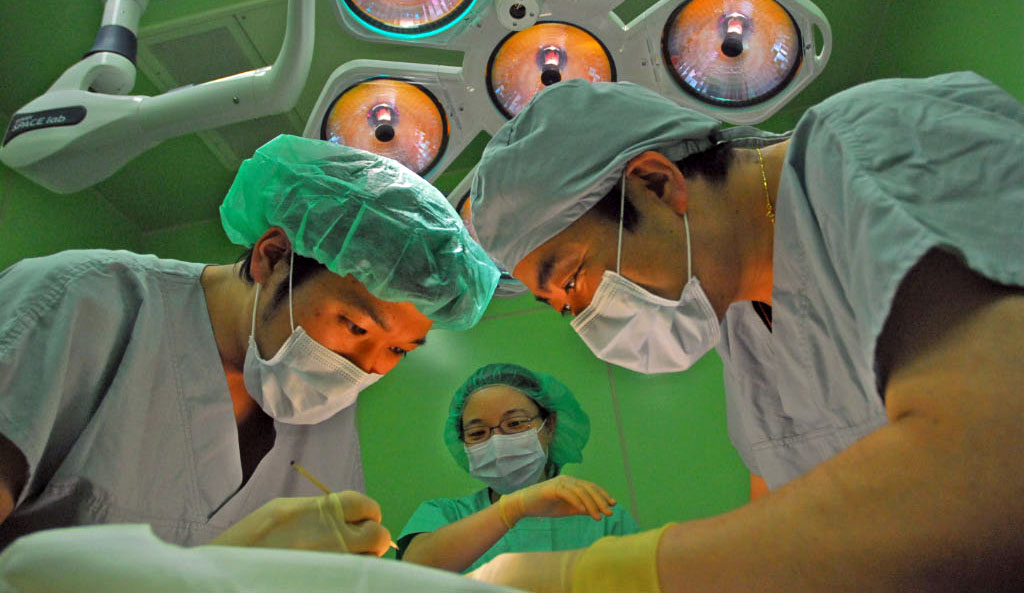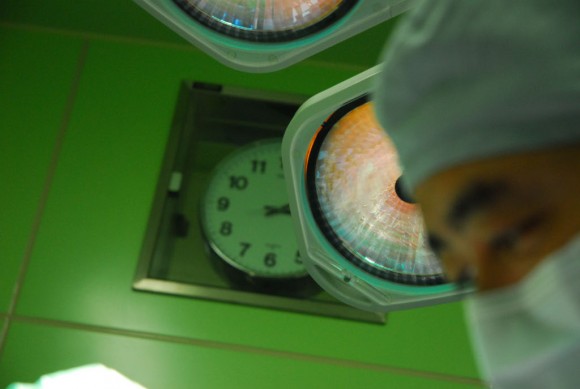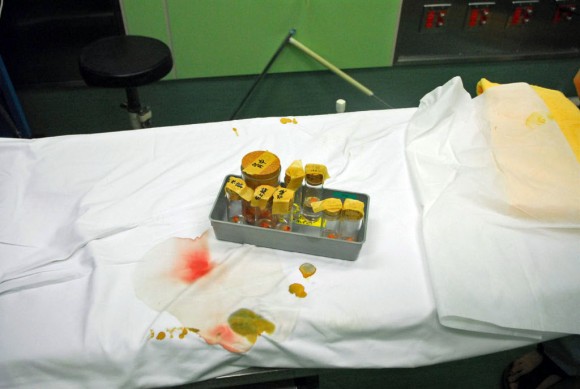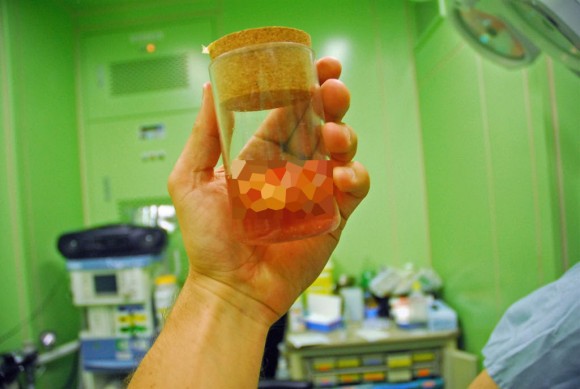The default in the operating theatre is calming classical music but it sounds too much like muzak for my liking. I don’t expect a postive response but ask anyway. The surgeon offers U2 or Oasis but thankfully no J-Pop, but I’m left wondering whether I should have brought my iPod. The team of two surgeons and two nurses give out a little cheer when I make my request – they must be bored listening to the same music over and over and over. Presumably they only get to listen to non-classical when the patient is under general anesthetic. Is this a suitable venue for targetted sound? – a patient lying on the slab listening to Mozart, whilst the team go about their business listening to Aphex Twin or the audio book version of a Stephen King novel? Yes, but what if the wrong audio was piped to the wrong person?
This is not a great time to think about risks and consequences.
During the 90 minute procedure nurses drift in and out through automated doors. There are three other operating theatres located in the same ward and between them they’ll do 16 operations a day, every day. One of the theatres lies directly across the hall way, when the doors to both rooms are simultainiously open I can see a headless body lying there. Bet that wasn’t planned. Oh, I should qualify that, its headless because the door doesn’t afford me a view of the whole body. It’s not moving, but then I guess neither am I. Still, I bet that wasn’t planned.
There are so many interesting practices and instruments in this place. One of the tools to stop bleeding (possibly a bipolar probe) makes a buzzing sound everytime its used, but its hard to hear when the horn section kicks in over Bono’s voice. Designing for secondary cues indeed. The need to deliver electricity means there’s a trailing cable that could be snagged, but someone has carefully looped in through a finger holds in a clamp. There is a flow of conversation with me that I assume is designed to re-assure them. It reminds me of the passage in one of Don Norman’s books about pilots and co-pilots speaking with one another as they come into land: if the pilot replies at least you know he’s conscious. Here it doesn’t necesssarily matter what the conversation is about and the talk drifts from volvos to ice-hockey to moomins. When Japanese talk about Finland the conversation often ends with Moomins.
It strangely beautiful to watch someone slowly slice you open when you’re under local anesthetic. The repeated gentle movements of a scapel firstly reveal whats directly under my skin, then whats directly under that and then what they are looking for. I’m torn between wanting to ask questions and not wanting to disturb. The stuff on my back that I’m not witness to feels like someone is slicing through cheese. But here in front of me shes gentle and with this I don’t feel a thing.
The hosptial’s near Ginza, the ride home takes an hour, it will be another 3 hours or so before the locals wear off.



